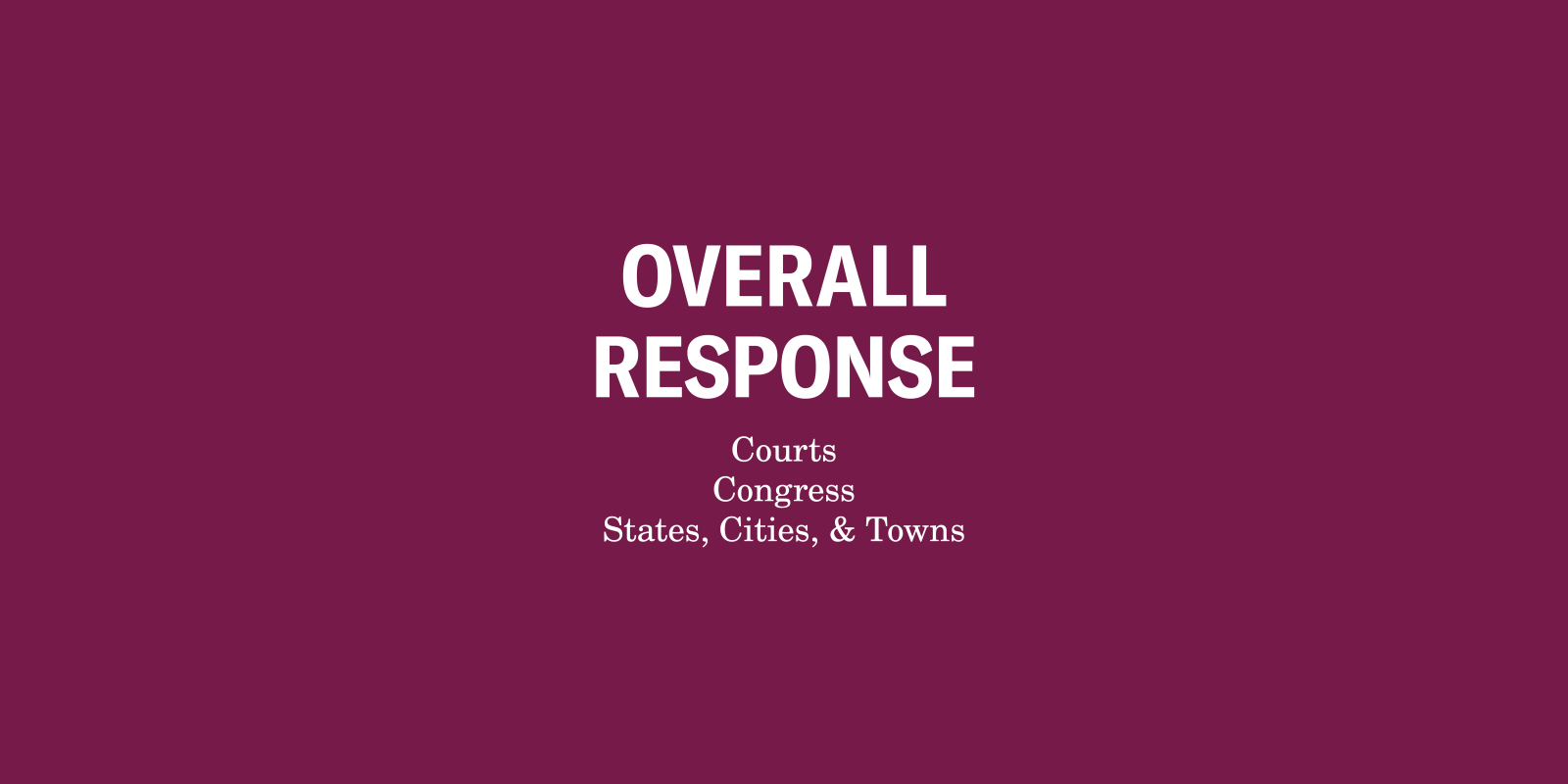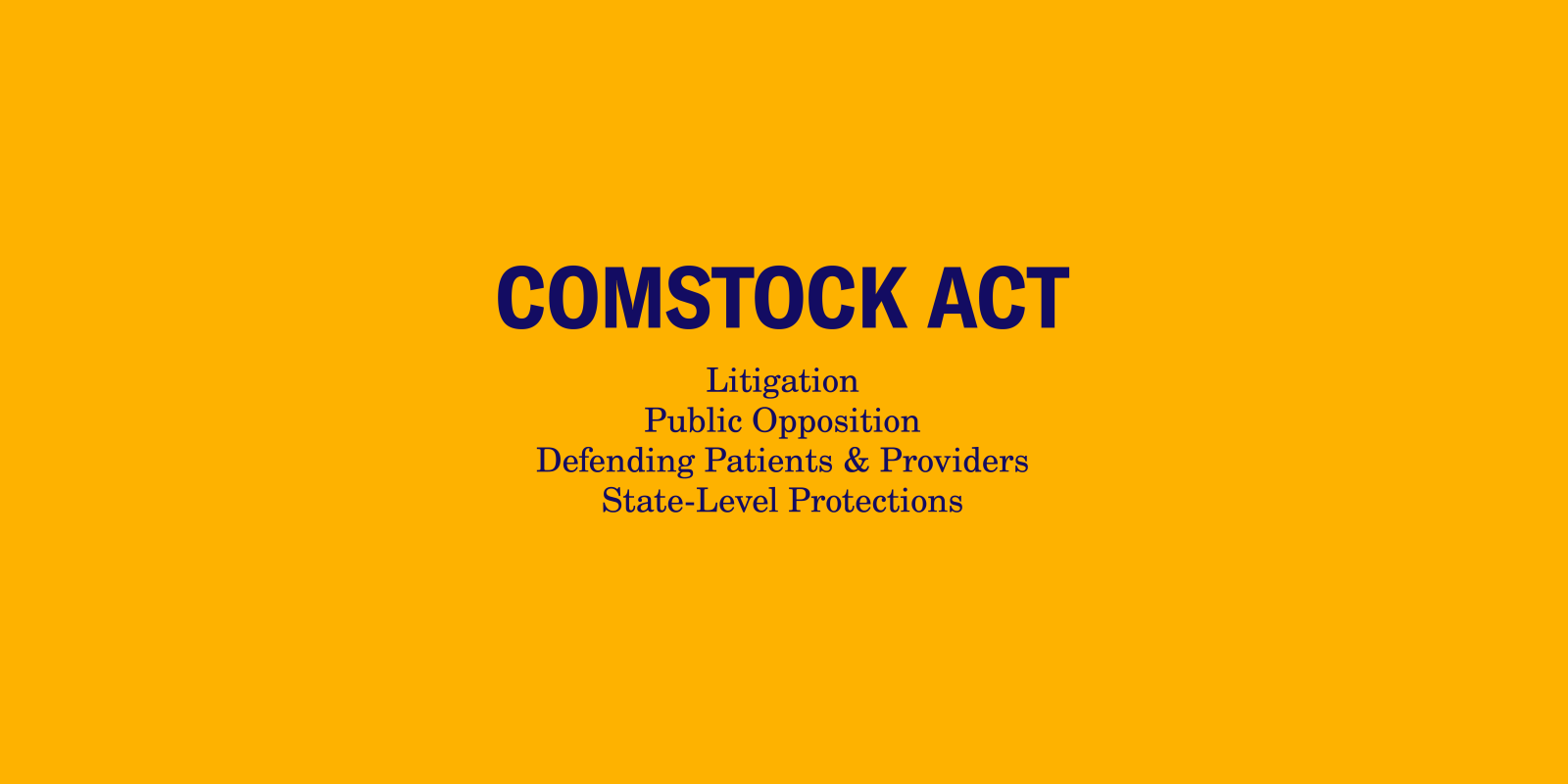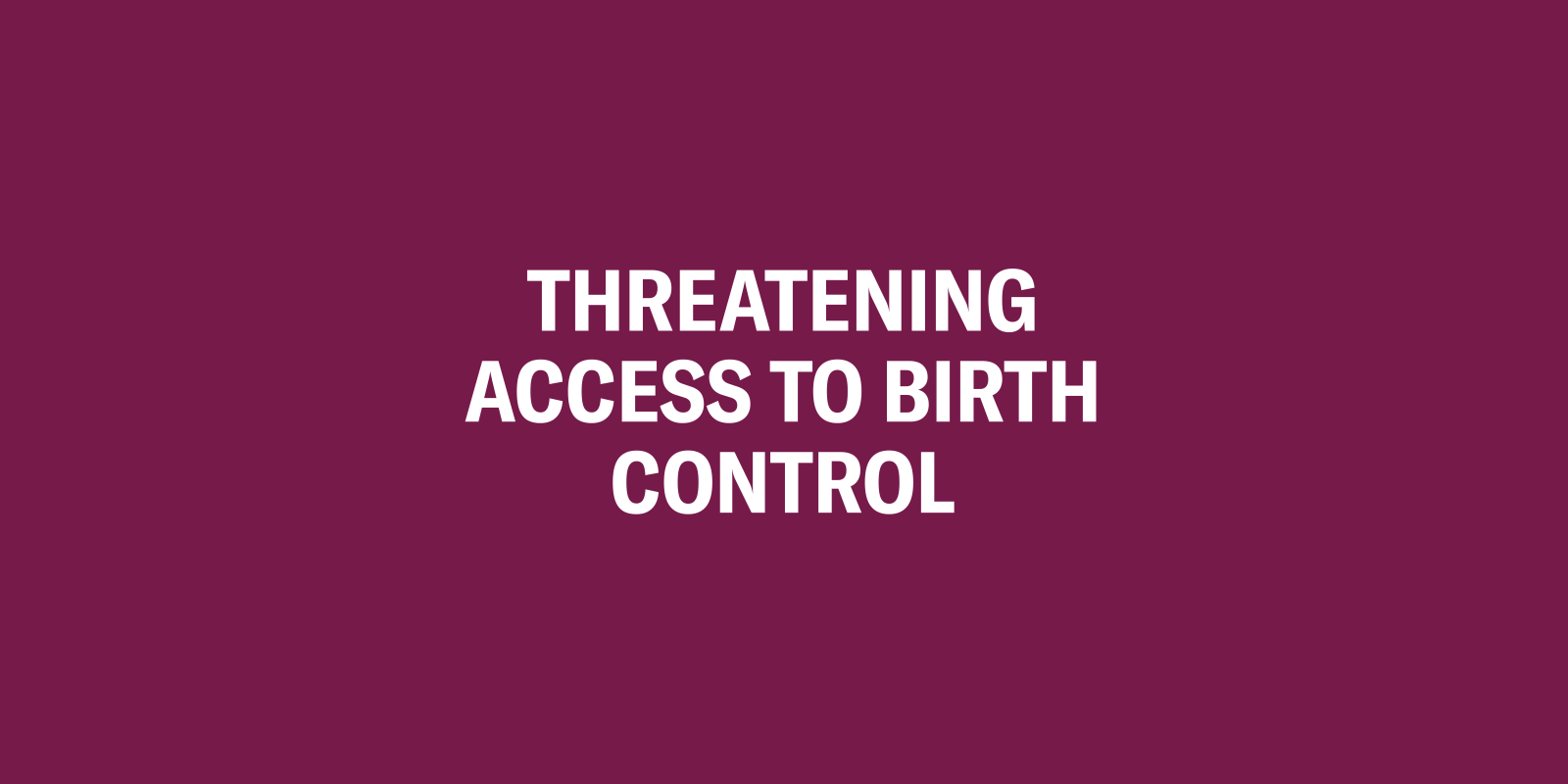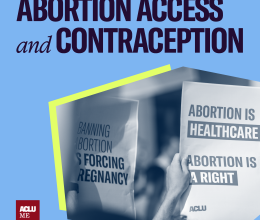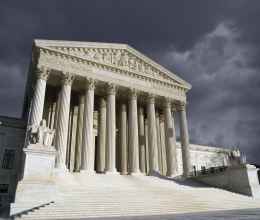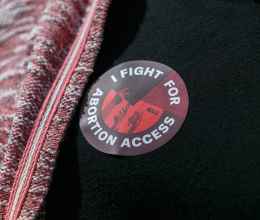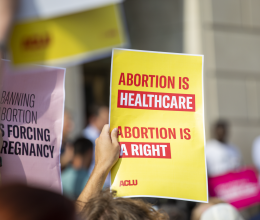
Threatening to Ban Abortion Nationwide and Take Away Our Reproductive Freedom
A second Donald Trump presidency presents an existential threat to abortion access nationwide, imperiling the ability of anyone to get an abortion anywhere in the country under any circumstance.
In 2016, Trump promised to appoint Supreme Court justices who would overturn Roe v. Wade. Over the course of his presidency, he followed through on this catastrophic commitment, stacking the federal judiciary with staunch abortion opponents, including three Supreme Court justices who voted in 2022 to overturn Roe and with it the federal right to abortion in a case called Dobbs v. Jackson Women’s Health Organization.
That decision resulted in a devastating civil liberties and public health crisis. Fourteen states have banned abortion altogether, and others have rendered abortion care practically unavailable by criminalizing the provision of abortion care after the earliest weeks of pregnancy. Millions of people of reproductive age now live hundreds of miles from the closest abortion provider, forcing more than 171,000 people to travel outside of their home state to secure access to abortion care in 2023 alone. Attorneys general in some states have threatened to criminally prosecute those who help pregnant people get the care they need. Countless other people are being forced to continue their pregnancies against their will. States have also criminalized abortion care even in medical emergencies where the inability to get an abortion puts the pregnant person’s health, life, and future fertility in danger — all with the approval of Trump-appointed Supreme Court justices.
Trump is responsible for this harm. Indeed, he wears it as a badge of honor. Last year, he bragged that he was the “guy [who] ended Roe v. Wade.” In a recent Time magazine interview, Trump said that, under the Dobbs decision he orchestrated, states could monitor pregnancies and prosecute women for obtaining abortions — a disturbing callback to his 2016 assertion that “there has to be some form of punishment” for women who obtain abortions after the care is outlawed.
As difficult as it may be to fathom, a second Trump presidency would exponentially increase the damage done to reproductive rights. We know that overturning Roe was not the last stop for Trump and his anti-abortion allies; they want to ban abortion nationwide and will not hesitate to try to do so if Trump secures a second term. Trump and his allies would seek to impose on everyone — including those living in states that have sought to protect abortion — the pain and chaos that people living in states that have banned abortion are now experiencing.
To be sure, Trump’s public position on whether Congress should pass a national abortion ban shifts with the political winds. The reason for his equivocation is obvious: In the wake of Dobbs, there has been a groundswell of public support for abortion rights and a backlash against bans and other political interference with access to abortion care. Public opinion polls show strong public support in the two years since Dobbs, with almost two-thirds of Americans supporting abortion rights. Since Roe was overturned, the ACLU, our affiliates and our allies have helped protect abortion access in six states through ballot measures as well as through electoral victories in Pennsylvania, Virginia, and Wisconsin, where abortion rights was a central campaign issue. As a result of this backlash, Trump has equivocated and obfuscated on whether Congress should pass a national abortion ban.
Still, his politically expedient waffling on this question is merely a ruse. According to Trump’s anti-abortion strategists, Trump does not need Congress to pass a new law to shut down abortion access in every state across the country. Instead, a second Trump administration plans to use a 150-year-old law called the Comstock Act to effectively ban abortion in every state, with no exceptions — without any involvement from Congress. Due to the political toxicity of banning abortion, Trump and his allies have intentionally kept these plans close to the vest: According to Jonathan Mitchell, Trump’s lawyer before the Supreme Court and the architect of Texas’ abortion bounty-hunter law, S.B. 8, Trump will attempt to enforce the Comstock Act as a backdoor nationwide abortion ban if he returns to office — solidifying his place as the most anti-abortion president in American history.
While misusing the Comstock Act is the most sweeping threat to abortion posed by a second Trump presidency, it is by no means the only one. For example, if he assumes the presidency again, Trump will attempt to eliminate medication abortion, which accounts for almost two-thirds of abortions nationwide, by ordering the Food and Drug Administration (FDA) to rescind approval of one of the drugs, mifepristone, used for such care. Anti-abortion activists recently brought a case seeking to take mifepristone off the shelves nationwide all the way to the Supreme Court. Indeed, a rabid anti-abortion judge appointed by President Trump initially did just what they asked, rescinding the approval of this medication used in most abortions in the U.S. today. Fortunately, in June, the Supreme Court turned these particular litigants away, finding that they did not have enough at stake to bring the lawsuit. But that very narrow ruling did not touch on the merits of those plaintiffs’ claims. Concerningly, the case has now been sent back to the lower courts and to the same anti-abortion Trump-appointed judge who initially ordered mifepristone off the market. That judge, Matthew Kacsmaryk, has already let three state attorneys general join the case, and they have vowed to pick up where the other litigants left off.
The threats to people’s ability to control their bodies and their reproductive lives don’t stop with attempts to outlaw abortion. For example, Trump recently admitted that he was looking at ways to restrict access to contraception. While electoral realities forced him to attempt to walk back that statement, as one of the leading anti-reproductive-health members of Trump’s administration recently explained, Trump’s “track record is the best evidence, I think, you could have of what a second term might look like if Trump wins.” That track record includes, among other things, changing federal rules that decimated access to birth control for low-income people by forcing Planned Parenthood and other providers of high-quality family planning services out of federal programs. If Trump has a second term, we will see these and other attacks on birth control and other family planning services continue.
